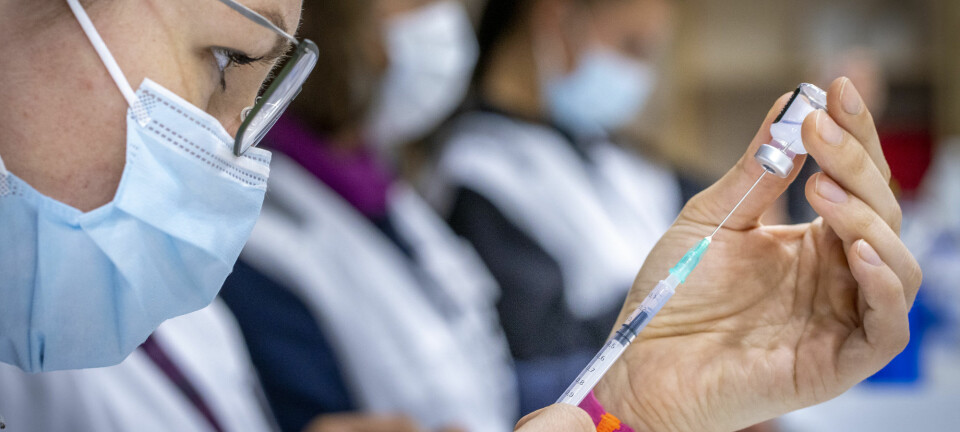
Norwegian expert committee:
Country should not use AstraZeneca or the Johnson & Johnson vaccines
A Norwegian expert committee has recommended the government do not include adenoviral vector based vaccines in the national vaccination programme.
“Our advice is that vaccines based on adenoviral vectors should not be used in the vaccination programme,” Lars Vorland, who has chaired the expert committee, said at a press conference this morning.
Norway paused the AstraZeneca vaccine on March 11 following reports of rare but serious side effects from the vaccine. According to the committee report, eight cases of the rare syndrome called VITT have been observed in Norway. Four of these people died. This gives a prevalence of more than 1 in 20 000, which is higher than what has been found in most other countries.
Norwegian doctors were among the first in the world to say that the vaccine was the cause of the rare but very serious blood clotting side effect.
The AstraZeneca pause was most recently extended in mid-April, with the announcement that a committee would take a closer look at adenoviral vaccines and their use in Norway.
May be given in certain circumstances
The committee recommends that the adenoviral vector vaccines may be given to people who of their own accord wish to take one, but only under certain circumstances.
“We have discussed examples such as an immigrant in Norway whose family is ill in a home country with rampant spread of the virus,” Vorland said.
“If given good information, and the person still wishes to travel, then he or she may be given this vaccine outside of the general national vaccination programme."
A minority of four people in the committee believed that the adenoviral vector vaccines should be given to anybody who voluntarily would like to take them.
The Government will now take some time to review the report before they reach a final decision.
Less risky for Norwegian women to wait for an mRNA vaccine
The Norwegian Institute of Public Health recommended that Norway should take the AstraZeneca vaccine out of the national programme in April, but the Government instead chose to establish the expert committee.
Today the NIPH extended their recommendation to the Johnson & Johnson vaccine.
“It is clear that the rare but serious side effects that we have seen with AstraZeneca also appear with the use of Janssen”, Camilla Stoltenberg, director of the NIPH, said at the press conference.
“There is great uncertainty as to prevalence, and whether it occurs more often in some groups, such as according to age and gender”, she said.
According to Stoltenberg's presentation, calculations from the US show a prevalence of these side effects from Janssen in the States which is comparable to the prevalence of side effects from the AstraZeneca vaccine in Europe – though lower than that which is seen in Norway, and Norway and Denmark taken together.
Stoltenberg stressed that the recommendation is based on the current status in Norway.
“We have control over the epidemic in Norway, reopening is underway, and we have come a long way in our vaccinations of those above the age of 65.”
Norway also has enough mRNA vaccines to be able to offer all Norwegians above the age of 18 their first dose of a shot within the third week of July.
Based on this, the NIPH calculate that for women in Norway aged 18-50, it would be more risky to get vaccinated with the Janssen vaccine, compared to waiting for an mRNA shot.
“Nobody has been able to assure us that it is easy to detect this side effect early enough to treat or prevent it, or secure that mortality would be lower than the high mortality that we have seen so far – though it varies in the different datasets,” Stoltenberg said.
———
The report of the committee is mainly in Norwegian, but the recommendations are available in English on page 9: Recommendations from the expert committee
This article is being updated.


































